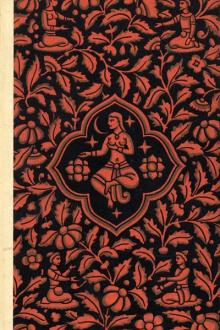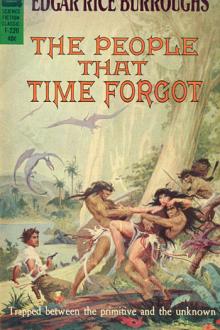Genre Adventure. Page - 20

ttered nerves, Professor Maxon sailed with his daughter for a long ocean voyage, which he hoped would aid him in rapid recuperation, and permit him to forget the nightmare memory of those three horrible days and nights in his workshop.
He believed that he had reached an unalterable decision never again to meddle with the mighty, awe inspiring secrets of creation; but with returning health and balance he found himself viewing his recent triumph with feelings of renewed hope and anticipation.
The morbid fears superinduced by the shock following the sudden demise of the first creature of his experiments had given place to a growing desire to further prosecute his labors until enduring success had crowned his efforts with an achievement which he might exhibit with pride to the scientific world.
His recent disastrous success had convinced him that neither Ithaca nor any other abode of civilization was a safe place to continue his experiments, but it was not until their cruising had brought the

ely to befighting and much trouble as the result.'"
"Is that all the Book says?" asked Ozma.
"Every word," said Dorothy, and Ozma and Glinda bothlooked at the Record and seemed surprised andperplexed.
"Tell me, Glinda," said Ozma, "who are theFlatheads?"
"I cannot, your Majesty," confessed the Sorceress."Until now I never have heard of them, nor have I everheard the Skeezers mentioned. In the faraway corners ofOz are hidden many curious tribes of people, and thosewho never leave their own countries and never arevisited by those from our favored part of Oz, naturallyare unknown to me. However, if you so desire, I canlearn through my arts of sorcery something of theSkeezers and the Flatheads."
"I wish you would," answered Ozma seriously. "Yousee, Glinda, if these are Oz people they are mysubjects and I cannot allow any wars or troubles in theLand I rule, if I can possibly help it."
"Very well, your Majesty," said the Sorceress, "Iwill try to get some information to guide you. P

istaken or misinformed, and I rather think that I have in one or two rare instances observed its information to be not strictly accurate with reference to myself. Indeed, I have, now and again, been more surprised by printed news that I have read of myself, than by any printed news that I have ever read in my present state of existence. Thus, the vigour and perseverance with which I have for some months past been collecting materials for, and hammering away at, a new book on America has much astonished me; seeing that all that time my declaration has been perfectly well known to my publishers on both sides of the Atlantic, that no consideration on earth would induce me to write one. But what I have intended, what I have resolved upon (and this is the confidence I seek to place in you), is, on my return to England, in my own person, in my own Journal, to bear, for the behoof of my countrymen, such testimony to the gigantic changes in this country as I have hinted at to-night. Also, to record that wherever I ha

"You'll stop nothing at all, Mr. Kennedy, with all respect to you, sir. My master is no hare-brained person; he takes a long time to think over what he means to do, and then, when he once gets started, the Evil One himself couldn't make him give it up."
"Well, we'll see about that."
"Don't flatter yourself, sir--but then, the main thing is, to have you with us. For a hunter like you, sir, Africa's a great country. So, either way, you won't be sorry for the trip."
"No, that's a fact, I shan't be sorry for it, if I can get this crazy man to give up his scheme."
"By-the-way," said Joe, "you know that the weighing comes off to-day."
"The weighing--what weighing?"
"Why, my master, and you, and I, are all to be weighed to-day!"
"What! like horse-jockeys?"
"Yes, like jockeys. Only, never fear, you won't be expected to make yourself lean, if you're found to be heavy. You'll go as you are."
"Well, I can tell you, I am not going to let myself be weighed," said Kennedy, firmly.
"But, sir, it seems that the doctor's machine requires it."
"Well, his machine will have to do without it."
"Humph! and suppose that it couldn't go up, then?"
"Egad! that's all I want!"

r him, leaning upon his staff, and whistling as he gazed round about. Robin observed him furtively as he trimmed his staff, measuring him from top to toe from out the corner of his eye, and thought that he had never seen a lustier or a stouter man. Tall was Robin, but taller was the stranger by a head and a neck, for he was seven feet in height. Broad was Robin across the shoulders, but broader was the stranger by twice the breadth of a palm, while he measured at least an ell around the waist.
"Nevertheless," said Robin to himself, "I will baste thy hide right merrily, my good fellow"; then, aloud, "Lo, here is my good staff, lusty and tough. Now wait my coming, an thou darest, and meet me an thou fearest not. Then we will fight until one or the other of us tumble into the stream by dint of blows."
"Marry, that meeteth my whole heart!" cried the stranger, twirling his staff above his head, betwixt his fingers and thumb, until it whistled again.
Never did the Knights of Arthur's Round Tabl

l, low-storied house, of which the ground-floor was occupied by the proprietor of a dram-shop, who stood smoking in his doorway, next to the entrance-passage. Lupin asked if Mr. Hargrove was at home.
"Mr. Hargrove went out about half-an-hour ago," said the publican. "He seemed very much excited and took a taxi-cab, a thing he doesn't often do."
"And you don't know...."
"Where he was going? Well, there's no secret about it He shouted it loud enough! 'Prefecture of Police' is what he said to the driver...."
Lupin was himself just hailing a taxi, when he changed his mind; and I heard him mutter:
"What's the good? He's got too much start of us...."
He asked if any one called after Mr. Hargrove had gone.
"Yes, an old gentleman with a grey beard and spectacles. He went up to Mr. Hargrove's, rang the bell, and went away again."
"I am much obliged," said Lupin, touching his hat.
He walked away slowly without speaking to me, wearing a thoughtful air. There

hands, which were most elegant and of which he took the greatest care; and throwing on one side the large kid gloves tried on at first, as belonging to the uniform, he put on others of silk only. At this instant the door opened.
"Monsieur d'Artagnan," said the valet-de-chambre.
An officer, as he spoke, entered the apartment. He was a man between thirty-nine and forty years of age, of medium height but a very well proportioned figure; with an intellectual and animated physiognomy; his beard black, and his hair turning gray, as often happens when people have found life either too gay or too sad, more especially when they happen to be of swart complexion.
D'Artagnan advanced a few steps into the apartment.
How perfectly he remembered his former entrance into that very room! Seeing, however, no one there except a musketeer of his own troop, he fixed his eyes upon the supposed soldier, in whose dress, nevertheless, he recognized at the first glance the cardinal.
The lieutenant r

he youth kissed the hand of his sire who said, "O my son, were I sure that thou wouldest deal justly by Anis al-Jalis, I would give her to thee." "O my father, what justice am I to do to her?" "I enjoin thee, O my son, not to take another wife or concubine to share with her, nor sell her." "O my father! I swear to thee that verily I will not do her injustice in either way." Having sworn to that effect Nur al-Din went in to the damsel and abode with her a whole year, whilst Allah Almighty caused the King to forget the matter of the maiden; and Al-Mu'ín, though the affair came to his ears, dared not divulge it by reason of the high favour in which his rival stood with the Sultan. At the end of the year Al-Fazl went one day to the public baths; and, as he came out whilst he was still sweating, the air struck him[FN20] and he caught a cold which turned to a fever; then he took to his bed. His malady gained ground and restlessness was longsome upon him and weakness bound him like a chain; so he called out,

the cargadores had taken along my orchids in their scurry.
"There was nothing to do but to make the best of it, and that meant getting under way. My rifles and ammunition were in the shelter, and one of the dogs had stayed behind. There was no use crossing the stream, for the opposing cliffs were sheer and apparently unscalable, though I thought I saw traces of a succession of rough steps that almost looked like masonry leading to a ledge halfway up the cliff. But there they ended definitely in a smooth wall. So I decided to follow the stream downward. It ran almost due northeast toward the Amazon, and I hoped that later it would widen and become navigable for a raft. Shorthanded as we were, that was a slim chance, but the only one in sight.
"It was useless to follow the carriers. The day was drawing to a close, and I determined to pass the night where we were. At sunset I heard a shout from the machete men, and found them groveling on the edge of the precipice. It was the mirage again, float

guesses concerning it and the strange events it narrated. The torpedoing of the liner upon which Bowen J. Tyler, Jr., had taken passage for France to join the American Ambulance was a well-known fact, and I had further substantiated by wire to the New York office of the owners, that a Miss La Rue had been booked for passage. Further, neither she nor Bowen had been mentioned among the list of survivors; nor had the body of either of them been recovered.
Their rescue by the English tug was entirely probable; the capture of the enemy U-33 by the tug's crew was not beyond the range of possibility; and their adventures during the perilous cruise which the treachery and deceit of Benson extended until they found themselves in the waters of the far South Pacific with depleted stores and poisoned water-casks, while bordering upon the fantastic, appeared logical enough as narrated, event by event, in the manuscript.
Caprona has always been considered a more or less mythical land, though it is vouched for